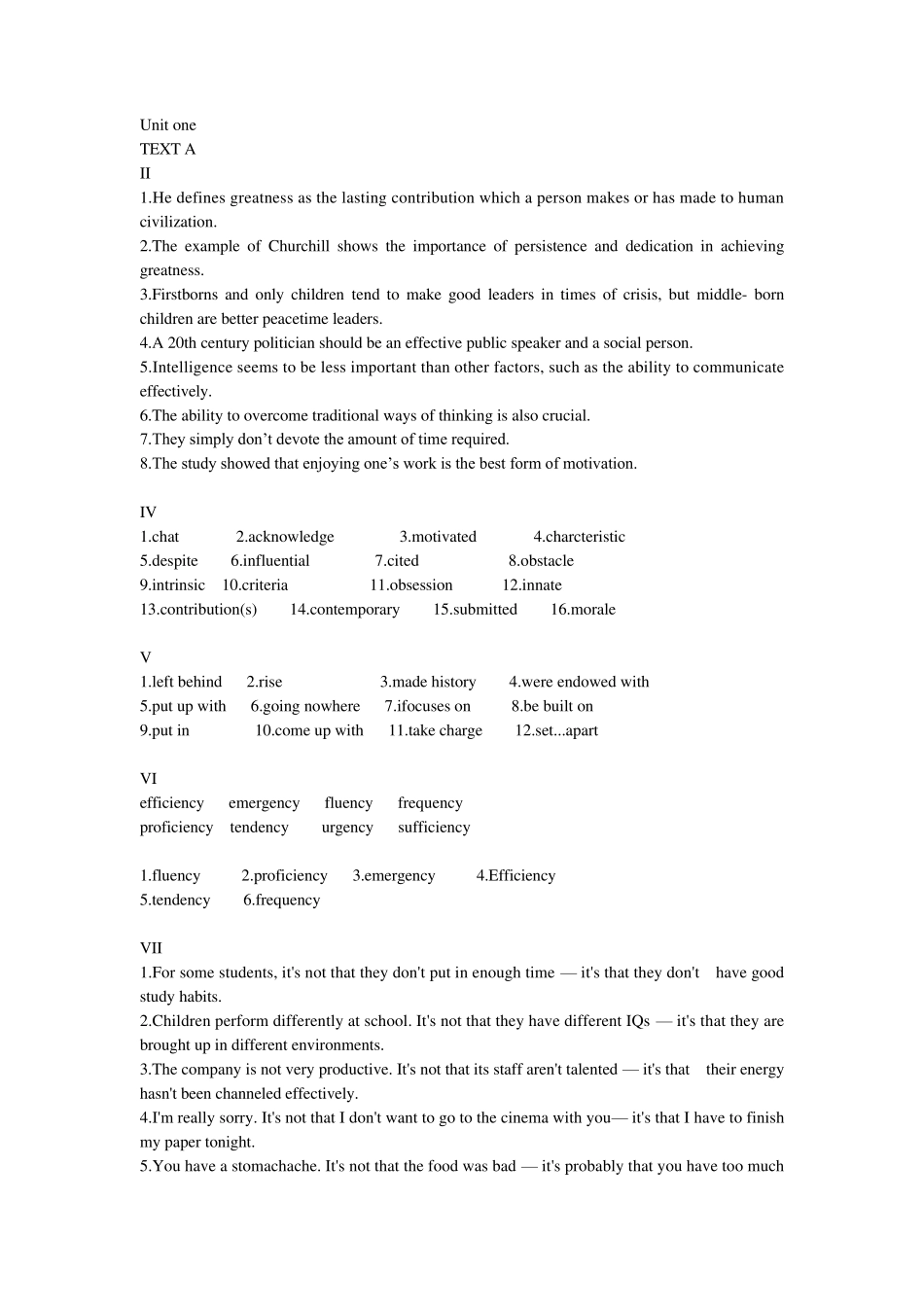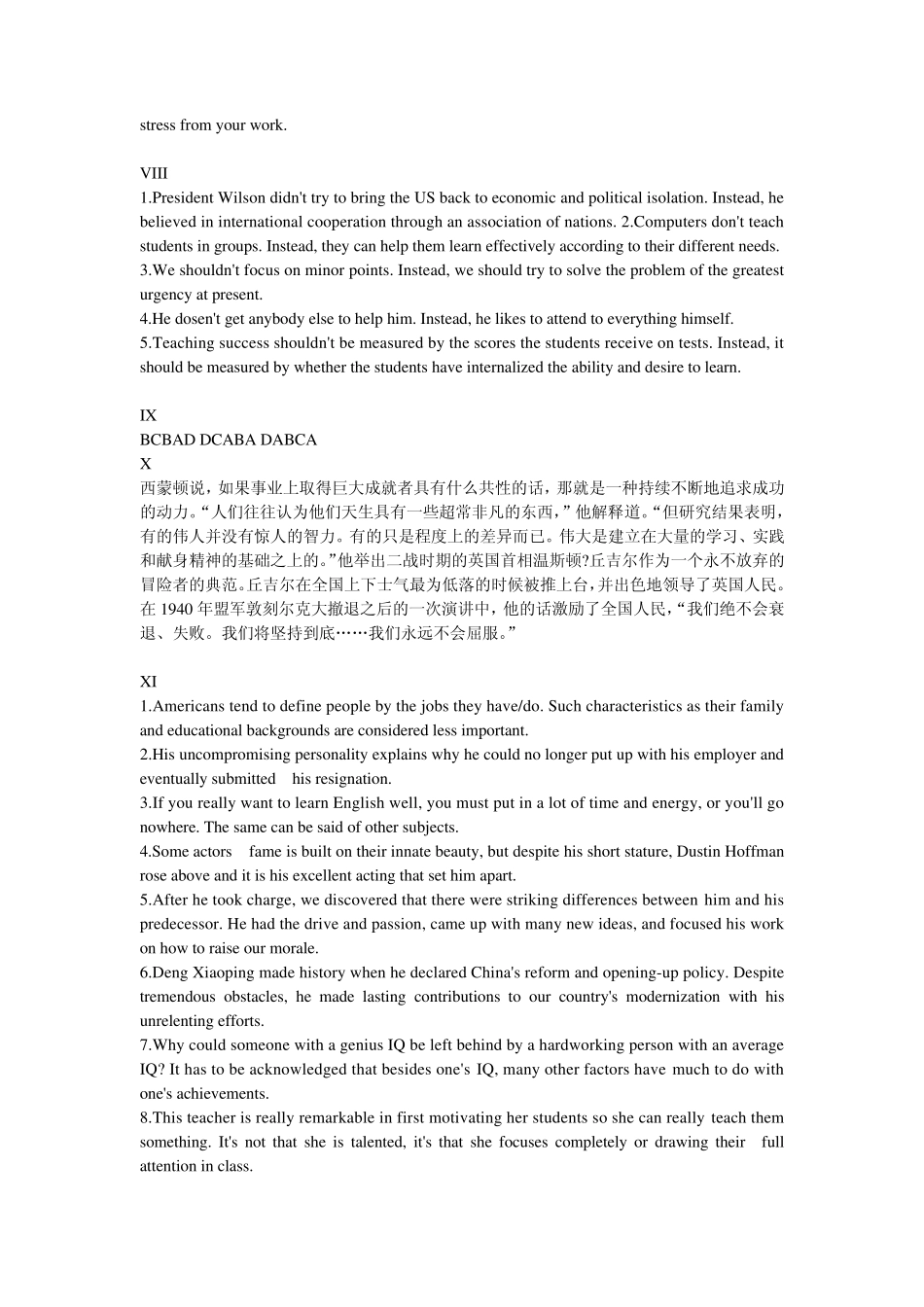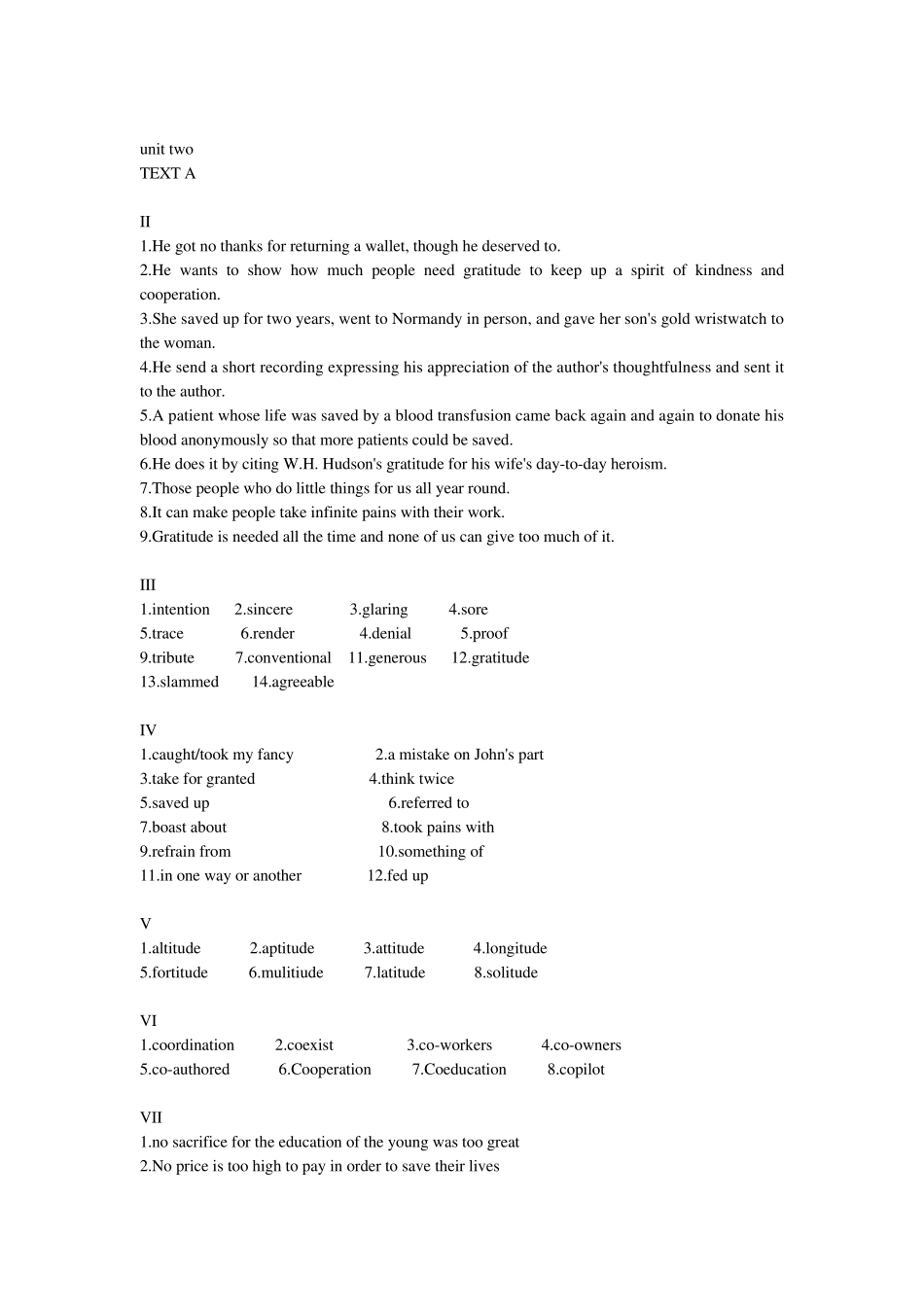Unit one TEXT A II 1.He defines greatness as the lasting contribution which a person makes or has made to human civilization. 2.The example of Churchill shows the importance of persistence and dedication in achieving greatness. 3.Firstborns and only children tend to make good leaders in times of crisis, but middle- born children are better peacetime leaders. 4.A 20th century politician should be an effective public speaker and a social person. 5.Intelligence seems to be less important than other factors, such as the ability to communicate effectively. 6.The ability to overcome traditional ways of thinking is also crucial. 7.They simply don’t devote the amount of time required. 8.The study showed that enjoying one’s work is the best form of motivation. IV 1.chat 2.acknowledge 3.motivated 4.charcteristic 5.despite 6.influential 7.cited 8.obstacle 9.intrinsic 10.criteria 11.obsession 12.innate 13.contribution(s) 14.contemporary 15.submitted 16.morale V 1.left behind 2.rise 3.made history 4.were endowed with 5.put up with 6.going nowhere 7.ifocuses on 8.be built on 9.put in 10.come up with 11.take charge 12.set...apart VI efficiency emergency fluency frequency proficiency tendency urgency sufficiency 1.fluency 2.proficiency 3.emergency 4.Efficiency 5.tendency 6.frequency VII 1.For some students, it's not that they don't put in enough time — it's that they don't have good study habits. 2.Children perform differently at school. It's not that they have different IQs — it's that they are brought up in different environments. 3.The company is not very productive. It's not that its staff aren't talented — it's that their energy hasn't been channeled effectively. 4.I'm really sorry. It's not that I don't want to go to...


